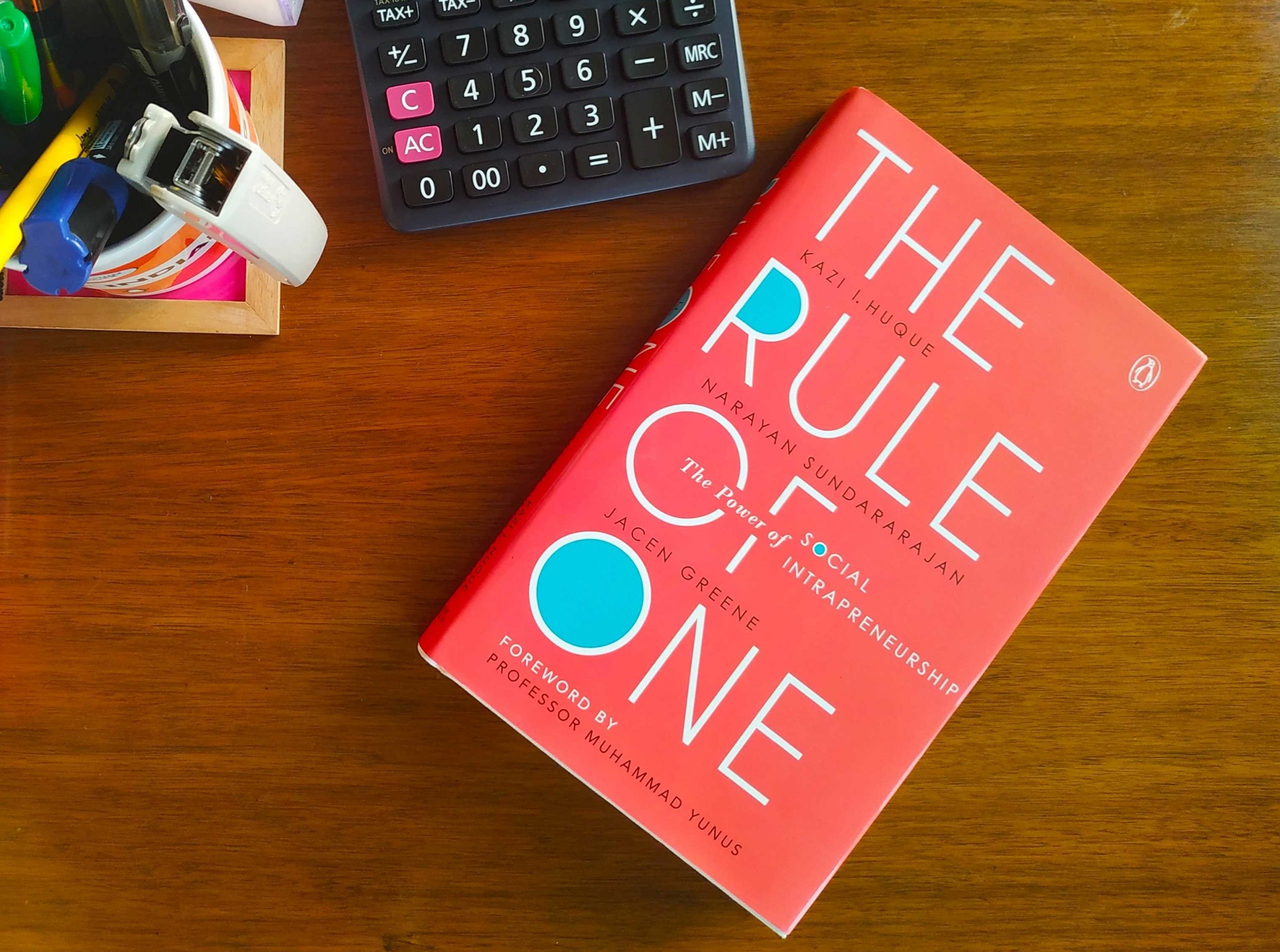
The Rule of One speaks about the power of social intrapreneurship in the developing world. Colleagues at Intel, Kazi I. Huque and Narayan Sundararajan founded an intrapreneurial venture between Intel and Grameen, called Grameen Intel Social Business, working with Nobel laureate Muhammad Yunus. Along with Jacen Greene, they have collected and presented their original and transformational ideas in this book that explores crippling challenges like poverty, healthcare and education which plague the developing world and how problems related to these challenges can be solved in a sustainable and comprehensive manner.
This book tells us that nearly half of the people living in developing countries are yet to benefit from information technology. Peppered with illustrative and useful examples and case studies, The Rule of One provides a comprehensive roadmap for any foundation, development agency and company to engineer solutions to deal with social and economic issues.
Here’s an excerpt from the introduction!
—————————————————————————–
Take out a world map and a pencil. Draw a circle with the centre in Bangladesh and a radius of 1500 miles.
The circle covers much of India, Pakistan, China and Indonesia, some of the most densely populated countries
in the world. There are more people living inside this circle than outside it, and many of them live in poverty(Quah, 2016).
When people think of economic development in developing countries, they often think of handouts: direct charity, development aid and low-cost loans provided to local governments. However, at the end of the day, the real solution to poverty is economic opportunity through education and jobs. We have seen information technology become a key economic driver in the West. We have seen outsourcing add millions of jobs in India. We have seen banks and microcredit institutions evolve to provide access to credit for the poor. Can we do more to create viable economic solutions using information technology for the impoverished parts of the world?
The Efforts in this area thus far have centred on cheap devices, such as a $100 computer and greater broadband internet access, sometimes coupled with additional services. A typical approach is to donate computers to schools and hospitals, or to set up an Internet-enabled service centre in a remote village. The service centre comes with a promise to serve the low-income community by providing, for example, harvest information, or by processing online forms for land registries that help establish ownership claims. These efforts have only generated limited success in alleviating poverty, because more is needed than just setting up a computer with an internet connection. Entire government bureaucracies and organizations have to be created or redesigned to process this information to produce the required output. But more importantly, there has to be clear cash flow for
the beneficiary—better agricultural information leads to more income, or the ability to process a land registry leads to lower costs. Our approach to information technology adoption is ineffectual without those clear economic benefits.
In 2007, Craig Barrett was the chairman of Intel Corporation. He had previously served as CEO, and in his new role he acted as a technology ambassador travelling the world. In each country he visited, he met with the leaders of the government and major corporations. He talked about the impact of technology on education and healthcare, and he talked about how countries can catalyse their economic growth through the increased
adoption of technology. On one of these trips, he met Muhammad Yunus, who had recently received the Nobel Peace Prize for his work on microcredit. Yunus shared the prize with Grameen Bank, which he had established to loan small amounts of money to those in poverty for income-generating purposes, enabling millions of people to alleviate their poverty by establishing access to financial credit.
One of the ideas that came up during their discussion was to create a company to focus on how technology solutions might be designed for low-income populations. Could we create solutions and services that had real tangible benefits? Not for the rich, but for the poor— those who were yet to benefit from the incredible growth of information technology. The company would be set up as a social business, a non-loss and non-dividend
company. In other words, the company would try to recover its operational costs, but if it generated any surplus cash, that would be reinvested into the company to support its mission.
Intel found two employees, Kazi I. Huque and Narayan Sundararajan, who were passionate about and committed to the use of technology for social impact. We, at different points in our Intel tenure, had pitched other business ideas for how to do that, and this was a perfect opportunity. Setting up a business with a goal for social impact is why we are called social entrepreneurs. When that happens within an existing organization, we refer
to ourselves as ‘social intrapreneurs’.
Get your copy of The Rule of One









